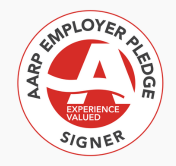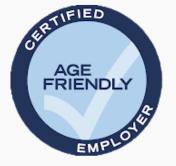You’ve made the decision: It’s time to make your job search a priority, but your technology skills are holding you back. You’ve been out of the workforce for 5, 10, maybe 15 years or longer, just as technology has rapidly changed how we work. You haven’t stayed current with the latest software required for the jobs you desire.
Sound familiar? The honest truth is that having good technology skills is expected in today’s work environment, and weak technology skills remains a top concern for employers hiring career re-entry candidates. The good news is that it’s never too late to learn new skills.
We’ve discussed how to identify both the basic (Part II of this blog) and specialized (Part III) technology skills needed in today’s workforce. In today’s post, I will cover three steps that will provide you with resources to assess your current skills, learn some new skills, and find real opportunities to apply your technological proficiencies.
Let’s begin:
 Step 3. Take a Skills Assessment Test or Two or Three
Step 3. Take a Skills Assessment Test or Two or Three
My general sense, after years of interviewing and placing career re-entry candidates, is that people are all over the map when it comes to how accurately they rate their own technology skills. Whether you think your skills are good, bad or somewhere in between, take a skills test to obtain a more accurate benchmark of where your skills are currently. We use Total Testing, which caters to small businesses and individuals, to assess MS Office and other technology skills of our job candidates. As a job seeker, you can purchase an individual test for $20, and there are 800+ tests to choose from. Start with their Microsoft Office Skills Tests. Here is a Sample Score Report that identifies exactly what you need to learn to be considered basic, intermediate or advanced in MS Office. Use this service to assess your skills and identify your weaknesses.
Another, free option is to use these MS Office Skills Checklists that we found on the internet. They do not appear to have been updated recently, but they are still extremely useful in helping to identify – and ultimately learn — the variety of tasks you will need to perform in the workplace using MS Office software.
 Step 4. Learn as Many Skills as Practicable BEFORE You Apply for the Job
Step 4. Learn as Many Skills as Practicable BEFORE You Apply for the Job
Once you determine the skills you need and where you are deficient, be proactive. You do not want your lack of technology skills to be the reason a future employer does not hire you! You will be pleasantly surprised at the number of great resources out there – especially for basic technologies – that are very affordable. Some are even free! Check out our Job Seeker Resources page for an extensive list of online classes, tutorials, videos, etc. for gaining the technology skills you need to be competitive in the job market. Scroll down to the gray “Skills Development” heading and start learning!
 Step 5. Find Opportunities to Apply the Skills You’ve Learned in a Work Setting
Step 5. Find Opportunities to Apply the Skills You’ve Learned in a Work Setting
Unfortunately, sometimes it’s not enough to acquire the technology skills you need to do the job. Some prospective employers will want to see that you’ve used these skills in work settings. Create opportunities for you to practice, sharpen, and solidify the skills you’ve gained. Find a way to use a new technology in the volunteer and community service work you already do. Or find a new organization that could use your help, and present them with an offer they can’t refuse. Find a company you’d like to work for, and offer to complete a short, well-defined project for free. Just make sure that project is one that will allow you to use the technology skills you have acquired. Ask a friend who is an expert in the technology you’ve learned if you can help them with a project. If possible, save your work products so you have “proof” that you know a certain software.
Now that you know how to assess and develop the technology skills you will need as you re-enter the workforce, my next post will cover how to demonstrate to potential employers that your technology skills are current and strong!
Sheila Murphy is Co-Founder/Partner of FlexProfessionals, LLC, a niche staffing agency that matches professionals seeking meaningful, flexible work with growing businesses looking for top talent. Karen Eye, FlexProfessionals Career Re-Entry Intern, contributed to the research and writing of this article. Contact: sheila@flexprofessionalsllc.com.









